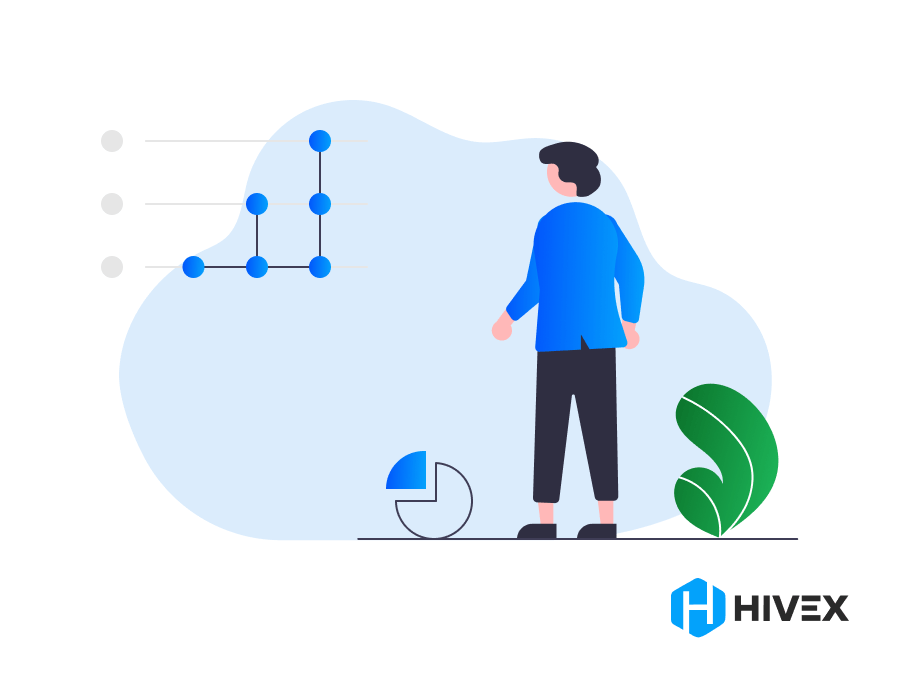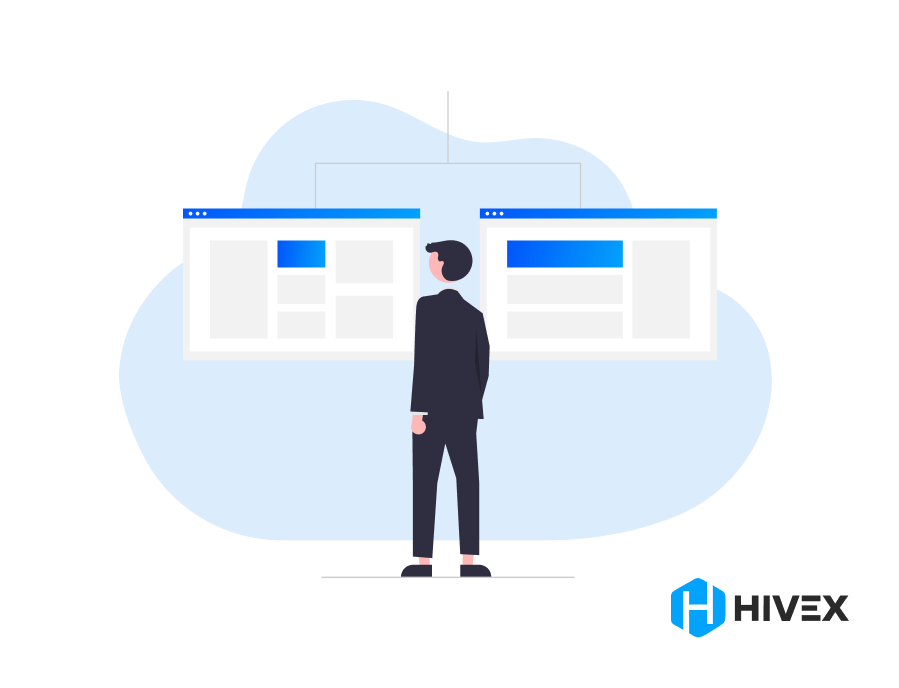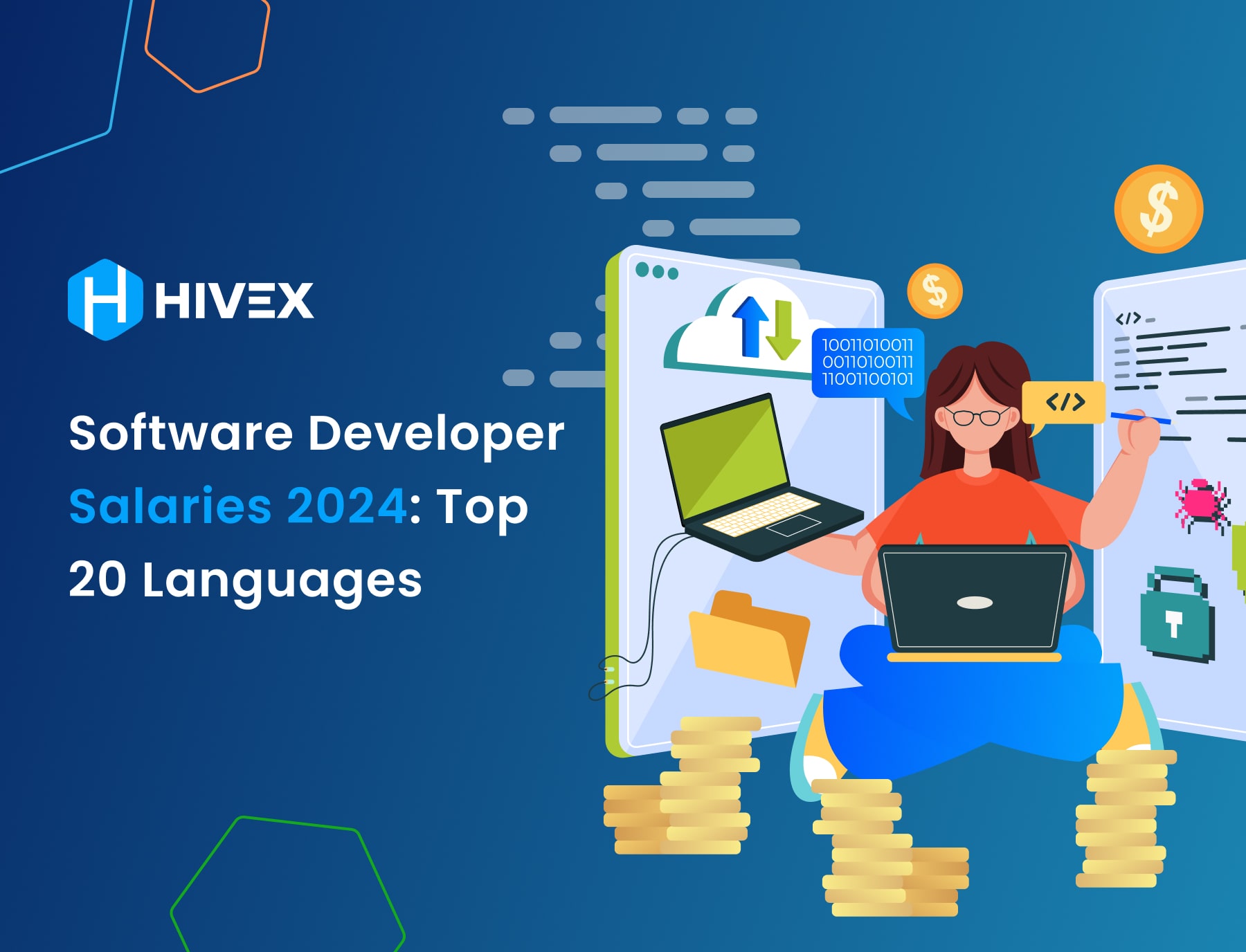Fintech Software Development: Everything You Need to Know

Thanks to technology, the financial sector has undergone a significant transformation. One of the driving forces behind this revolution is fintech, which is short for financial technology. Fintech has emerged as a game-changer, reshaping how we conduct financial transactions, manage money, and access financial services. In this article, we will explore the fascinating world of fintech software development, understanding its workings, trends, challenges, and the role of developers.
Quick Navigation
What is Fintech and how does it work?

Fintech, short for financial technology, refers to innovative, tech-driven solutions enhancing and automating various financial activities.
This broad field includes mobile payments, online banking, blockchain technology, robo-advisors, and digital currencies, among others. The primary goal of fintech is to streamline processes, boost efficiency, improve accessibility, and offer more personalized financial services.
Remember when you had to visit a bank for every little transaction? Those days are long gone.
Thanks to fintech, financial services are now more accessible and convenient, letting you manage your finances from your smartphone. The widespread use of smartphones and internet connectivity has significantly boosted fintech’s growth, making it a staple in our daily lives.
A major perk of fintech is its ability to democratize financial services. It opens up a wide range of financial products and services to individuals who were previously underserved or completely excluded by traditional banks.
This inclusivity is vital, especially in developing countries where many people lack access to formal banking services. Fintech solutions like mobile money platforms and peer-to-peer lending apps have bridged this gap, providing crucial financial tools to those who need them most.
Artificial intelligence and machine learning are game-changers in fintech. These technologies have transformed how financial institutions analyze data and make decisions.
They enable precise risk assessment, robust fraud detection, and personalized user recommendations. By leveraging data analytics, fintech companies can offer tailored financial solutions that meet individual customer needs and preferences, enhancing overall financial well-being.
Fintech Software Development – what is it?

Fintech software development is all about crafting the technology that powers today’s most innovative financial services. It involves designing, building, and maintaining software that makes FinTech applications run smoothly.
This includes everything from creating user-friendly interfaces and robust security frameworks to integrating seamlessly with existing financial systems and embracing the latest technologies.
Developers in this field are vital – they sculpt the fintech landscape by developing cutting-edge solutions that meet the dynamic needs of both consumers and businesses.
Prioritizing Security in Fintech
A critical focus of fintech software development is data security and privacy. As financial services become more digital, protecting sensitive information becomes more crucial.
Fintech developers employ top-notch security measures like encryption, multi-factor authentication, and stringent access controls to defend against cyber threats and prevent unauthorized access.
They stay on top of the latest cybersecurity trends and regulations, continually strengthening the security framework of their applications to ensure user data remains safe and confidential.
Scaling and Optimizing Performance
Fintech software development also emphasizes scalability and performance optimization. As user numbers grow and transaction volumes increase, fintech applications need to handle this expansion smoothly.
Developers work on crafting software that can scale effortlessly to meet growing demands. They use efficient algorithms, tap into cloud infrastructure for flexible scalability, and perform extensive performance testing to identify and resolve any issues.
This focus ensures fintech applications provide a seamless, responsive user experience, even under high demand, making sure that the system not only works well but can also handle growth without a hitch.
FinTech Software Industry: Current Trends and Market Dynamics

The fintech software industry is experiencing significant growth, thanks to new technologies and shifting consumer expectations. Let’s explore some of the major trends currently shaping this space and the competitive environment of the market.
Mobile Payments Take the Lead
Mobile payment solutions are transforming how we handle transactions. Simply using our smartphones, we can now pay for services or products without the need for cash or cards. This shift towards mobile payments is making transactions quicker and life a bit easier for everyone.
The Role of Blockchain Technology
Blockchain technology is gaining traction in the fintech sector due to its ability to enhance transparency and security. This technology operates on a decentralized system, which means it doesn’t require middlemen to manage transactions.
It’s particularly useful for things like international payments and contracts that need to be secure and clear, cutting down on costs and increasing trust.
A Highly Competitive Market
In the fintech world, competition is fierce. Traditional banks are now heavily investing in new fintech capabilities to keep up with digital advancements.
On the other hand, startups are bringing fresh, innovative ideas to the table, shaking up the traditional ways we think about banking and finance. These startups often work alongside bigger banks, combining their strengths to better serve customers.
Artificial Intelligence Changes the Game
AI is rapidly changing how fintech companies operate. AI technologies, like chatbots for customer service, help provide quicker and more personalized assistance to users.
Machine learning, a part of AI, is crucial for identifying fraudulent activities and managing risks effectively, making financial platforms safer for users.
Regulatory Compliance
With all these advancements, staying compliant with regulations is crucial for fintech companies. As rules evolve, these companies must continuously adapt to meet stringent standards that protect data privacy and security. Compliance isn’t just about following laws – it’s about building and maintaining trust with users.
These insights show how technology is not just creating new opportunities but also setting new standards in the financial world. The ongoing transformation is something that both businesses and consumers must adapt to and embrace.
You may also like: Use cases and benefits of AI in Fintech
Comparing Traditional Banking and FinTech

Traditional banking and FinTech may seem like rivals, but each offers unique advantages that cater to different customer needs. Understanding these can help consumers make informed choices about their financial services.
The Stability of Traditional Banks
Traditional banks have been around for ages, building a robust reputation and expansive customer base. They offer a physical presence that instills a sense of security and familiarity, particularly appealing to those who are not as comfortable with technology.
Many people value the ability to walk into a branch, interact face-to-face, and receive personalized service from someone they trust. This physical network of branches is vital for delivering hands-on customer care and maintaining a tangible presence in communities.
The Agility of FinTech
On the flip side, FinTech is synonymous with agility, innovation, and tailored experiences. FinTech companies use advanced technology to provide quicker, more efficient, and personalized financial solutions.
They operate with lower overhead costs, which allows them to offer competitive rates and lower fees. Additionally, FinTech startups are typically very responsive to customer feedback, using it to swiftly adapt to changing market needs and preferences.
Synergy Through Collaboration
Interestingly, the line between traditional banking and FinTech is blurring as collaboration increases. Many traditional banks are now integrating FinTech innovations into their services, combining their reliability with the efficiency of modern technology.
This partnership allows customers to enjoy the convenience and modernity of FinTech alongside the established trust and security of traditional banking.
Benefits of Both Worlds
Traditional Banks:
- Extensive branch network for in-person service
- Deep-rooted stability and security
- Personalized customer interactions
FinTech Companies:
- Innovative and efficient digital solutions
- Customized financial services based on user data
- Accessibility and convenience through mobile apps and online platforms
This dual approach caters to a broad spectrum of preferences, ensuring that whether customers are looking for the reassuring presence of a physical branch or the convenience of digital management, their needs are met.
Clearly, this shows that rather than merely competing, traditional banks and FinTech can coexist and complement each other, enhancing the overall consumer experience in the financial sector.
Types of Fintech Software Development

Fintech software development spans a variety of applications that are redefining the financial sector. Let’s dive into some of the key areas:
1. Mobile Payments
Mobile payment solutions, like digital wallets and payment apps, have transformed how we transact daily.
Apps such as PayPal, Venmo, and Apple Pay allow users to make payments swiftly with just a few taps on their smartphones, bypassing the old hassle of cash or cards.
This technology isn’t just for consumers though. Businesses large and small are adopting mobile payments to offer customers a quicker, more seamless checkout experience.
2. Online Banking
Online banking has revolutionized personal finance management. From transferring funds and paying bills to applying for loans, all can be done from the comfort of your home.
Banks have responded to the demand for convenience with sophisticated online platforms and apps that not only handle transactions but also provide tools for better financial management.
Features like automatic bill payments, savings goals, and spending trackers help users make savvy financial decisions.
3. Robo-Advisors
Robo-advisors are automated platforms that use algorithms to offer financial advice and manage investments. Tailored to individual risk tolerances and preferences, these platforms make investing approachable and accessible.
Robo-advisors like Betterment and Wealthfront utilize advanced data analysis to craft personalized investment strategies, making professional financial advice more affordable and available to everyone.
4. Digital Currencies and Blockchain
The emergence of cryptocurrencies like Bitcoin and Ethereum highlights the revolutionary impact of blockchain technology – a secure, decentralized ledger that verifies transactions.
Beyond financial transactions, blockchain is paving the way for innovations in areas like supply chain management and identity verification. As digital currencies gain traction, businesses are exploring how blockchain can streamline operations and foster new models of business innovation.
The field of fintech software development is rich and varied, offering numerous technologies that enhance how we interact with money. From making payments and managing investments to innovating with blockchain, fintech is making financial services more accessible, efficient, and secure for everyone.
Related reading: How do Blockchain Developers work?
Key Components of a Fintech Software Architecture

Creating effective fintech software requires attention to detail across several crucial elements. Here’s a straightforward look at the key components that make up a solid fintech architecture.
User Interface (UI): The Gateway to User Satisfaction
The user interface (UI) is the primary tool for user interaction. A clean, intuitive UI is crucial – it needs to be user-friendly, responsive, and accessible on multiple devices to ensure a smooth user experience.
Moreover, adding a personal touch to the UI by incorporating elements tailored to individual user preferences and behaviors can significantly boost engagement and create a deeper connection between users and the platform.
Security: The Bedrock of Trust
In fintech, security cannot be overstated. Protecting sensitive financial data and earning customer trust are top priorities.
To shield against potential threats, implementing stringent security measures such as encryption, multi-factor authentication, and regular security audits is essential. Additionally, keeping pace with the latest cybersecurity trends and continuously updating security protocols are critical to stay ahead of emerging threats.
Real-time monitoring and threat detection also play pivotal roles in maintaining a secure environment for both users and the platform.
Integration: Seamless Connection with Existing Systems
For fintech software to function seamlessly, it must integrate effectively with existing financial systems and APIs. This integration allows for real-time data exchanges, keeping information across platforms accurate and current.
Embracing open banking and collaborating with third-party service providers broadens the functionality of fintech software. This means users can enjoy a comprehensive set of tools and resources through a single platform, making the experience not only more convenient but also more efficient.
Scalability: Preparing for Growth
As fintech applications attract more users and handle more transactions, scalability becomes essential. A well-planned architecture must handle increases in user numbers and transaction volumes without dropping performance or compromising security.
Cloud-based solutions and microservices architectures are key to enhancing scalability. They allow for flexible resource allocation and efficient workload management.
By considering scalability from the start, fintech software can adapt smoothly to changing demands, ensuring consistent performance no matter the load.
Understanding these core components can help in developing fintech software that is not only effective but also resilient, secure, and poised for future growth. By focusing on these foundational elements, developers can create platforms that stand strong in the fast-paced world of financial technology.
Advantages and Challenges of Fintech Software Development

Fintech software development is reshaping the financial industry, offering numerous benefits for both consumers and businesses while also facing distinct challenges. Here’s a closer look at the pros and cons of this dynamic field.
Key Advantages of Fintech Development
- Convenience: FinTech apps provide the ultimate convenience, allowing users to perform financial transactions on the go, anytime and anywhere.
- Efficiency: by automating services and digitizing operations, fintech reduces the need for paperwork and manual labor, streamlining financial processes.
- Accessibility: FinTech extends financial services to underserved populations who may not have access to traditional banking.
- Cost Savings: with fewer overheads for physical infrastructure, fintech can offer services more cost-effectively than traditional banks.
- Personalization: tailored financial advice and personalized service offerings are possible thanks to fintech’s ability to adapt to user behavior and preferences.
Fintech solutions have revolutionized how we interact with our finances. With just a few taps, users can manage payments, transfers, or investments anytime, unbound by the physical and time constraints of traditional banking.
Automation and digitization also reduce the risk of human error and save valuable time, making financial management more straightforward and error-free.
Challenges in Fintech Software Development
- Regulatory Compliance: FinTech must adhere to stringent regulatory standards across different regions, which can vary widely and change frequently.
- Security Risks: handling sensitive financial data makes FinTech a target for cyberattacks, necessitating top-notch security measures to protect user information.
- Technological Innovation: the fast pace of technological advancement in fintech demands that developers continuously update their skills and knowledge to stay competitive.
- Trust and Adoption: encouraging widespread acceptance of fintech among consumers who may be skeptical about digital financial services remains a significant hurdle.
Navigating regulatory compliance is particularly complex as fintech companies must comply with diverse financial laws that include data protection and anti-money laundering statutes. Security is another crucial issue; robust strategies like encryption and multi-factor authentication are essential to safeguard user data.
Staying current with technological trends is also a challenge, with new tools and technologies emerging continuously. Developers must integrate innovations like blockchain for secure transactions or AI for customized financial advice into their platforms.
Building consumer trust is another critical challenge. Fintech companies need to engage in transparent communication and robust customer support, and provide educational resources to ease consumer concerns.
Collaborating with established financial institutions and ensuring regulatory compliance can also help build trust and encourage the adoption of fintech solutions.
While fintech software development brings substantial benefits to the financial sector by making services more accessible, convenient, and efficient, it also presents significant challenges that need strategic management to ensure continued growth and consumer trust in this evolving market.
Compliance and Regulations in Fintech Software Development

Fintech software development is a field deeply entrenched in a regulatory framework, making compliance a cornerstone for maintaining the integrity, security, and trustworthiness of financial services. Here’s how fintech companies manage the complexities of regulatory compliance.
A Look at The Regulatory Landscape
Fintech operates under strict regulations designed to ensure financial stability, protect consumers, and prevent financial crimes such as money laundering. Depending on their location and the specifics of their operations, fintech firms face different regulatory requirements:
- Bank Secrecy Act (BSA): aims to prevent money laundering and requires fintechs to keep detailed records and file reports on certain transactions.
- Dodd-Frank Act: enforces financial transparency and consumer protection.
- Know Your Customer (KYC) Requirements: ensures that fintechs verify the identity of their clients, aiding in fraud prevention.
The Compliance Challenge
Adhering to these regulations involves several stringent steps:
- Due Diligence: thorough investigations and checks are necessary to meet compliance standards.
- Reporting Requirements: regular submission of detailed reports to regulatory bodies to demonstrate adherence to legal standards.
- Data Privacy: implementing robust measures to protect user data confidentiality and integrity.
Fintech Developers’ Role in Compliance
For fintech software developers, understanding and integrating these compliance requirements into their solutions is critical. They must ensure that:
- Their software architecture supports comprehensive compliance measures.
- They stay updated with changes in regulatory frameworks to adjust their systems accordingly.
- They engage in continuous training to understand and apply the latest compliance and regulatory standards effectively.
Compliance is not just a legal obligation for fintech companies but also a vital aspect of building trust with users and sustaining long-term success in the financial marketplace.
By effectively navigating these regulatory waters, fintech firms can enhance their reputation and ensure a secure environment for their customers.
Learn more: Software Development Security Standards
Testing and Quality Assurance in Fintech Software

Testing and quality assurance are vital components in the development of fintech software, ensuring that the final product is not only functional but also secure, efficient, and compliant with stringent regulations. Here are the pillars of quality assurance in fintech:
Functional Testing
Functional testing checks that the software operates according to its defined specifications and effectively performs all its intended functions. This stage is crucial for verifying that every feature works as expected, from basic operations like transactions to more complex scenarios like data synchronization.
Security Testing
Given the financial nature of fintech applications, security testing is non-negotiable. This process involves rigorously testing the software to uncover any potential vulnerabilities that could be exploited by cyberattacks. The goal is to ensure robust security measures are in place to protect against data breaches and unauthorized access.
Performance Testing
Performance testing assesses how the software behaves under various conditions. This includes testing scalability by simulating different levels of user load and examining how network delays affect performance. The objective is to guarantee that the software delivers a smooth and responsive experience for all users, regardless of external pressures.
Compliance Testing
Fintech operates in a highly regulated sector, making compliance testing essential. This testing phase confirms that the software meets all regulatory standards required in its operating environment, ensuring that it is ready for market deployment without legal risks.
Why Testing Matters
In the fintech realm, where financial transactions and personal data are involved, the stakes are particularly high. Quality assurance does more than just prevent bugs or failures though. It protects companies from costly compliance penalties and safeguards customers’ trust by ensuring data integrity and security.
For fintech developers, incorporating thorough testing protocols is not just best practice—it’s an integral part of the development process that underscores a commitment to quality and reliability in a sector where these qualities are paramount.
By rigorously testing fintech software, developers can provide a product that not only meets but exceeds the high expectations of today’s tech-savvy financial consumers.
More on this topic: Why QA Engineers are essential and how to recruit them
The Role of Fintech Software Developers

Fintech software developers are essential to the success of financial technology applications, blending expert knowledge of the financial sector with advanced software development skills. Their role gets even more important as tech evolves.
Key Responsibilities of Fintech Developers
Design and Development:
Fintech developers are tasked with crafting and refining software applications that are reshaping the financial industry. They turn complex financial concepts into user-friendly technologies that simplify and enhance user interactions with financial systems.
Continuous Learning and Adaptation:
Staying current with technological advancements is the cornerstone of a fintech developer’s role. Innovations in artificial intelligence, machine learning, and blockchain are particularly relevant, offering new tools and methodologies for tackling financial challenges.
Collaboration:
Developers do not work in isolation. They collaborate closely with financial experts, designers, and other stakeholders to ensure the end product aligns with user needs and regulatory requirements.
This teamwork ensures that the applications are not only functional but also secure and enjoyable to use.
The Impact of Fintech Developers
The work of fintech software developers is not only coding. It is about creating solutions that match the speed of change in the world of finance.
They are problem-solvers who enhance how we interact with our finances, making these interactions more accessible, secure, and effective. Their ability to integrate new technologies into practical applications makes financial management tools available to a broader audience, thereby democratizing access to financial services.
Fintech developers play a crucial role in the ongoing transformation of the finance sector, driving innovation and ensuring that financial applications continue to meet the changing needs of businesses and consumers alike.
Their expertise not only supports the technical aspects of software development but also helps shape the future of finance, making them indispensable to the industry.
Hiring Fintech Developers: Choosing the Best Approach

When you’re ready to expand your fintech capabilities, choosing the right team structure for development is crucial. Here’s a look at the pros and cons of three common hiring models: in-house teams, outsourcing, and freelancing.
In-House Development: Full Control and Alignment
Advantages
Control and Flexibility: an in-house team gives you complete control over projects and flexibility in shifting priorities as needed.
Collaboration: regular interaction fosters a collaborative environment that can spur innovation and align closely with your company’s goals.
Challenges
Higher Costs: building and maintaining an in-house team can be expensive due to salaries, benefits, and ongoing training.
Recruitment: finding and retaining top talent requires significant time and resources.
Outsourcing: Cost-Effective and Skilled
Advantages
Access to Expertise: outsourcing fintech software development to specialized agencies gives you access to a broader pool of skilled developers without the long-term commitment.
Cost Efficiency: typically less costly than maintaining an in-house team, outsourcing frees up resources for other strategic investments.
Challenges
Finding the Right Partner: it’s crucial to conduct thorough research to ensure the agency’s reliability and the quality of its work.
Less Oversight: working with an external team might reduce your control over the project’s daily management and final quality.
Freelancing: Flexible and Project-Based
Advantages
Scalability: hiring freelancers allows you to scale your workforce up or down based on project demands.
Specialized Skills: freelancers often bring specialized skills perfect for specific tasks or short-term needs.
Challenges
Less Commitment: freelancers may not share your long-term vision, which could affect the project’s continuity and coherence.
Coordination: managing multiple freelancers requires strong coordination skills and could lead to inconsistencies without effective oversight.
Making the Right Decision
Deciding how to build your fintech development team depends on several factors:
- Scope of the Project: consider whether your project is short-term or if it requires long-term dedication.
- Budget Constraints: analyze your financial capacity to support an in-house team versus the potential savings from outsourcing or freelancing.
- Control and Collaboration Needs: determine how much direct oversight and collaboration your projects require.
Each hiring strategy offers distinct benefits and challenges. By carefully evaluating your company’s needs, you can select the most suitable approach to developing fintech solutions that will drive your business forward.
Dig deeper: Capacity Planning – a comprehensive guide
FAQ
How Can Financial Institutions Benefit from Partnering with a Fintech Software Development Company?
Partnering with a fintech software development company enables financial institutions to enhance their operational efficiencies and service offerings. These partnerships often focus on integrating innovative solutions such as mobile banking solutions, integrated payment systems, and digital payment capabilities into existing banking infrastructure.
A fintech software development company can also help financial institutions adopt regulatory technology to ensure compliance with evolving financial regulations efficiently. By leveraging cutting-edge technologies like machine learning technologies and data analytics, these companies provide financial institutions with tools to offer custom investment management solutions and improve customer experience, ultimately boosting their competitive edge in the finance industry.
What Are the Key Features to Look for in a Fintech App?
A robust fintech app should offer a seamless user interface that supports a wide range of financial services, including digital payments, billing software, and portfolio management. Security is paramount, so the app should include advanced features like encryption and multi-factor authentication to protect financial data.
Effective fintech apps also integrate data analytics to offer personalized services and insights to users. Additionally, features like integrated payment systems and support for digital assets enhance the app’s utility, making financial transactions more convenient for users.
What Should You Consider When Choosing a Fintech Software Development Company?
When selecting a fintech software development company, consider their expertise in the fintech software development process and their ability to deliver comprehensive fintech software development services. It’s important to assess their track record of developing banking software and other financial software development projects.
The company should demonstrate proficiency in leveraging cutting-edge technologies and providing scalable fintech software solutions. Also, evaluate their commitment to security and their experience with regulatory technology, as these are critical for protecting financial data and ensuring compliance in the finance industry.
You may also like: Software Developer Salaries Statistics – Top 20 Languages


